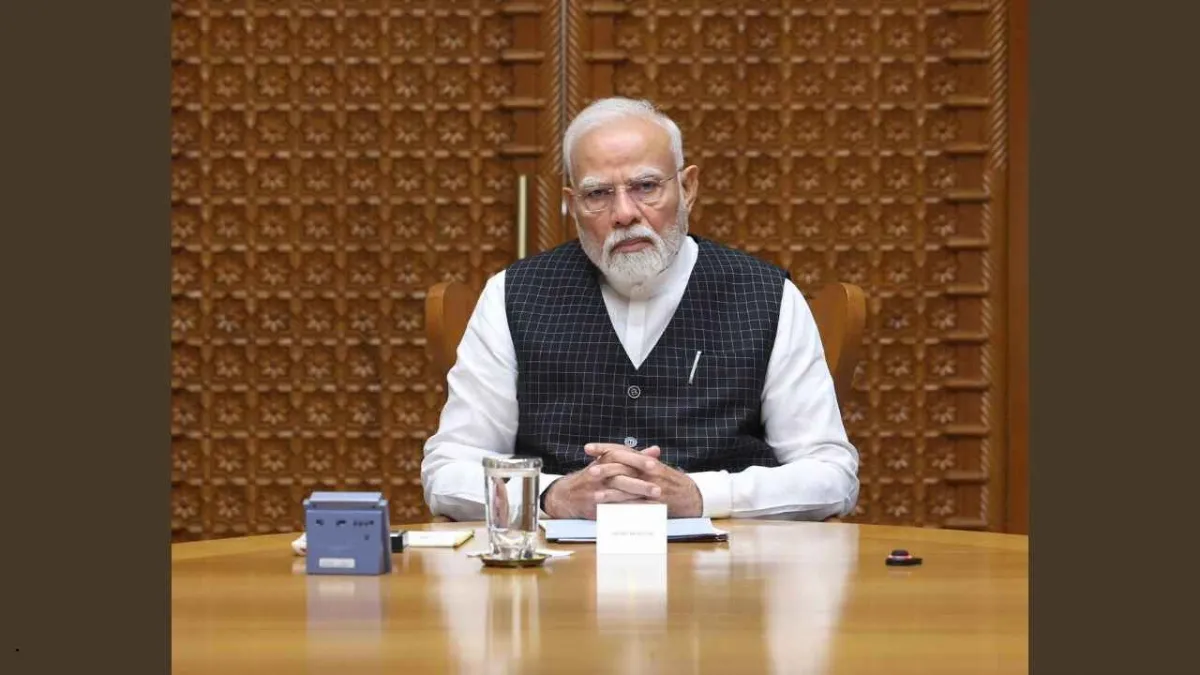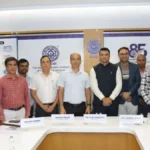Prime Minister Narendra Modi will inaugurate and lay the foundation stone for several development projects during his visit to Banswara, Rajasthan on Thursday. These include the Mahi-Banswara nuclear power plant, which has an estimated cost of 42,000 crore rupees.
The projects are associated with key sectors such as energy, water, infrastructure, health, and urban development.
The proposed 2,800 megawatt nuclear facility is the most significant among the projects to be launched, as it will play a crucial role in advancing the state’s energy self-reliance.
Other projects include a 590 megawatt renewable energy project to be built in Bikaner at a cost of 8,500 crore rupees, and 15.5 gigawatt high-capacity power transmission lines to be laid in Jaisalmer, Barmer, Sirohi, Nagaur, and Bikaner at a cost of 13,183 crore rupees.
Fifteen new drinking water supply projects will be constructed in 11 districts, including Banswara, Udaipur, Dungarpur, Sikar, and Ajmer, at a cost of 5,884 crore rupees. Additionally, two new flyovers, a bridge on the Banas River, 119 roads under the Atal Progress Path scheme in Bharatpur, and three new grid substations in Bikaner and Jaisalmer will be built.
The Prime Minister will also inaugurate several completed projects. These include combined solar power plants with capacities of 1,400 megawatts and 925 megawatts in Phalodi, decentralized solar power plants with a capacity of 895 megawatts built under the PM-KUSUM-C scheme at a cost of 3,132 crore rupees, the Isarda Dam, the Dholpur Lift Scheme and other regional irrigation projects, seven road projects in Barmer, Ajmer, Beawar, Dungarpur, Banswara, Rajsamand, and Udaipur, and a water resources project worth 20,833 crore rupees.
The Prime Minister will also flag off the Vande Bharat Express trains from Bikaner to Delhi Cantt and from Jodhpur to Delhi Cantt, as well as the Udaipur-Chandigarh Express.
Furthermore, under the government’s employment generation campaign in various departments, appointment letters will be given to 15,000 youths.
Overall, development projects worth over 1.22 lakh crore rupees will be inaugurated and have their foundation stones laid during the event. Projects worth 1,08,468 crore rupees are allocated specifically for Rajasthan.
Instructions have been given to officials to complete all preparations for the event. A visit to the event site in Banswara will be conducted on Wednesday to review the preparations.
Prior to the event, ‘yellow rice’ was distributed house-to-house in Banswara as a traditional invitation for the Prime Minister’s program.
The nuclear project in Banswara will prove to be a historic initiative for Rajasthan.
This project will not only ensure energy independence for the state but will also boost local tourism, employment, and economic development.
Accusations were made against the previous Congress government for misgovernance and failing to address public concerns. It was also claimed that the former Chief Minister prioritized political drama over public service.
Previously, a request was made for the Prime Minister to speak on the ‘slow progress’ in the investigation of the 2022 Kanhaiya Lal murder case in Udaipur, which is being investigated by the NIA.
A demand was also made for the Prime Minister to grant national monument status to the Mangarh Dham in the tribal-majority Banswara district during his visit.






